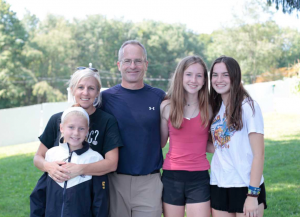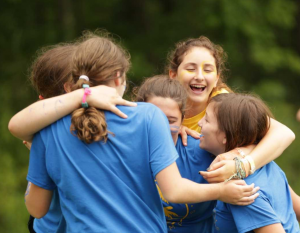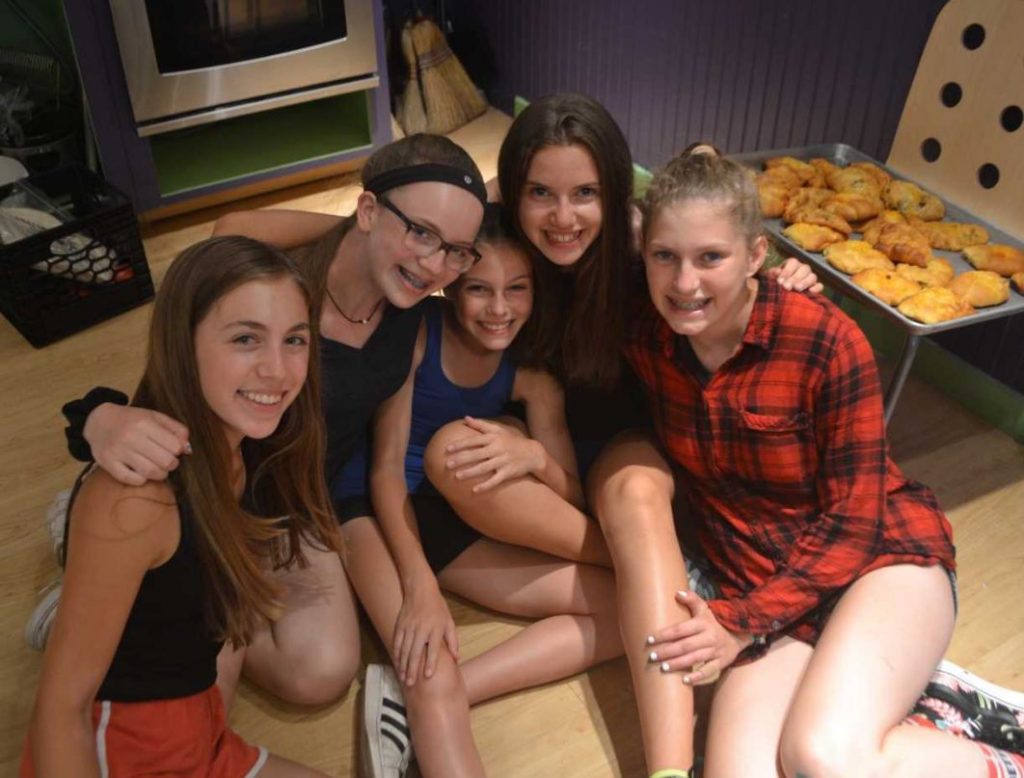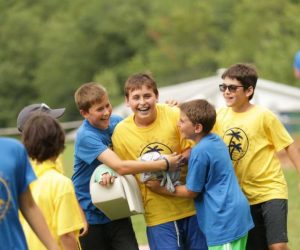Campus, Location, and Accreditation
Is the camp ACA accredited?
ACA accreditation entails a camp complying with a set of recommended guidelines set forth by the ACA (American Camp Association), the U.S. governing body for summer camps. There are more than 300 standards set forth by the ACA with which camps must comply before being certified. These guidelines are primarily focused on the safety and experience of camp and its facilities as well as how well they’re maintained and managed. Accredited camps must seek renewal every few years. Although accreditation is not required, reputable camps voluntarily seek it as a demonstration of their utmost concern for safety and good practices. Since many of the ACA’s standards are set in accordance with government regulations, achieving ACA accreditation is tantamount to certification that a camp is in compliance with government mandated health, safety, and policy practices.
Where is the camp located and how well maintained and inviting is the campus?
Although most summer camps are in more remote areas, that does not mean they should be inaccessible. It is important to evaluate the location and overall appeal of a camp. Beyond the idyllic setting, there are certain things that one should consider carefully when evaluating a camp. How well are the facilities maintained? Do the buildings and grounds appear well kempt? How well are facilities and equipment outfitted? Are things such as nets or mats, balls, boats, etc. in good condition or do they appear tattered or worn?
A good question to ask is when and what the most recent improvements made to the camp have been. This is not only a way of learning how well facilities are maintained but how committed the owners and directors are in reinvesting in camp and providing continuous improvements.
A key question that many overlook is what is the camp’s relationship with the surrounding community? Are community leaders and authorities aware of when camp is in session and cognizant of the camp population? Do the camp’s directors and senior staff work with local business owners and community leaders to maintain a symbiotic relationship.
A summer camp campus should also be designed with safety and traffic flow in mind. How secure is the camp from a main road? How easily is the camp accessed? Is there security of any sort and/or measures for distinguishing those individuals who should be on campus from those who shouldn’t?
While not critical, vsiting a camp while it is in session not only provides you with the opportunity to tour and evaluate facilities, it allows you to see camp in action. You can view activities and get a sense of how the staff interact with the campers as well as the general morale of both campers and staff. Is the camp a happy place? Do the campers appear to be having fun? Are staff actively engaged and engaging the campers?
Staff
What are the credentials of the directors?
You are about to send your child away to live with and be supervised by other people for several weeks. It’s important to know that there is a strong, knowledgeable, and caring core foundation of staff from the top down. Even the strongest camp staff is only as good as its directors. It’s crucial to get to know a camp’s directors; their education and background, interests, what attracted them to a career in the camping industry, and their level of experience in camping.
A good camp director will have some form of higher education and several years of camp experience. Although many camp directors pursued college degrees that somewhat relate to childcare, education, athletics, or the camping industry, there are also many who did not. This is not a red flag. Many camp directors did not realize they wanted to pursue a career in camping until they had spent several years working at camp during their college years. The field of a camp director’s education is not so much as important as knowing that he or she has achieved some level of education that trained him or her to make sound decisions and competently run a business that entails overseeing the daily well being and activities of dozens of staff as well as hundreds of children. Top directors maintain a vested interest in furthering their knowledge of the camping industry and take advantage of supplementary workshops, seminars, and certification courses related to camp in such areas as safety, child development, etc. Don’t be afraid to ask the directors of a prospective camp in what way they’ve continued to educate themselves about camp.
Being fully invested in camp life is a crucial trait of good camp directors. For camp directors and other senior, year round staff, camp does not begin and end with opening and closing days each summer. It is a year–round effort of careful planning, budgeting, and recruiting. In other words, being a good camp director is not just a job. It’s a lifestyle. Top camp directors eat, breathe, and sleep camp 365 days a year. If you question the directors of a prospective camp about their interests and the first things they name have little or nothing to do with camp, chances are, their hearts just aren’t into it.
Although many camp directors grew up attending summer camp, not all of them did. Some did not discover camp until they took on work as a staff member during their college years. When the passion developed is not so critical as the fact that the passion is there. Many camp directors thought they would spend a fun summer working as a camp counselor only to return summer after summer, working their way to positions as senior staff members. As their love of camp and camp life grew they realized that camp wasn’t just something to do while they trained for their career, they wanted it to be their career. This is why the vast majority of the most reputable camp directors in the industry, by default, have several years of camping experience prior to pursuing their first assignment as a director. Even those who knew from an early age that they wanted to work in the camping industry understand the value of experience for senior staff members. So much of a director’s job entails understanding the many nuanced experiences of running a camp.
How are the staff chosen?
A single counselor can make or break a camper’s experience. It’s important to find out how prospective
camps select and train their staff. Does the camp require staff members to be mature enough to handle the intensity of working with children 24/7? Where do the staff come from? Since summer camp is regarded as somewhat of an all American experience and provides great experience for those hoping to enter or continue a career in the childcare or recreation industries, it tends to draw staff members from all over the country as well as the world, which provides campers with the opportunity to have a diverse, cultural experience. In fact, according to the American Camp Association, about 20% of all camp staff members are international.
Find out what criteria staff must meet during the interview process in their area of specialization? What level of experience do senior staff members have? In general, staff members should have some experience in their area of instruction and the amount and level of experience, at minimum, should be proportionate to the staff member’s position and years of camp experience.
Are proper background and reference checks conducted prior to staff being hired? Background and reference checks are important screening tools camps use to verify experience and character as well as insure that prospective staff members have no history of criminal activity involving minors.
What percentage of the staff return each year?
In general, most camps maintain a staff retention rate of 30-40%. Anything less than this may be cause for concern. Beyond a general passion for summer camp, returning staff members are familiar with daily life at camp and understand the camp’s vision. They are also familiar with the campers. This makes adjusting to camp life easier for both returning campers and returning staff.
How is the staff trained?
Being an effective staff member entails more than showing up eager and enthusiastic a few days prior to camp. Camp staff deal with some very challenging issues throughout the summer. They must be able to ascertain camper interests, moods, and level of comfort while understanding how to positively encourage campers and intervene and coach intra camper relations on those occasions when moods and emotions may get a bit intense. They must understand how to keep their campers safe and healthy on a daily basis as well as in emergencies. Training should be rigorous enough to prepare staff for camp as well as vet those for whom camp life might not be suitable prior to the start of camp.
Camper Demographics and Retention
Where are the campers from?
Although the majority of campers may be from the region of the camp that they attend, the best camps attract a diverse array of campers from all over the country as well as the world. Summer camps embrace the qualities that each camper contributes to the camp family and overall environment and encourage acceptance. A diverse camper population, therefore, enhances a camper’s overall experience by exposing him or her to people of different cultures and backgrounds. The fact that a portion of a camp’s population is willing to travel some distance in order to return each summer is also a positive reflection of the camp’s overall environment and is indicative of a strong, stimulating camp program.
What is the camper return rate?
The best summer camps maintain an 80-90% camper retention rate. They are renowned for their well-maintained campuses, strong programs, and the most talented and experienced staffs. Admission to these camps is often competitive and sometimes requires camper spots to be secured a year or two prior to a camper’s first expected summer at camp. These camps also generally have strong generational ties, with several consecutive generations of some families having attended the same camp.
Keep in mind that at all summer camps, retention rates tend to drop slightly as campers get older. This is not necessarily indicative of a poor camp as long as the overall camper retention rate is high. As campers get older and develop multiple interests, they are sometimes forced to choose between favorite activities during their summer break. For some of even the most impassioned campers, this means sitting out camp for a summer or two in favor of pursuing another interest that may be more conducive to future goals.
Are there family references available?
The best camps encourage prospective families to speak with current or former families. In fact, word of mouth practically negates the need for elaborate outbound marketing campaigns for the most reputable camps as many prospective families are already familiar with a camp through current or former families.
Another way to get a sense of camper family satisfaction is to follow a camp’s social media. Happy, satisfied families remain actively engaged with the camp as well as each other through a camp’s social media outlets throughout the year.
What is the camper to staff ratio?
In order to keep campers safe and properly engaged, it is important for camps to maintain an appropriate camper to staff ratio. Industry standards dictate that for younger campers, this ratio is 1 staff member to every 6 campers. For older campers, the recommended ratio is 1 staff member to every 10-12 campers.
What type of medical staff is available on campus and how is medication administered?
At minimum, a properly equipped prospective camp should have a dedicated area or facility from which a licensed onsite nursing staff and/or doctor can administer basic first aid and care. Campus first aid facilities should include equipment and appliances for the proper tracking and storage of medication, and medication should only be administered by properly trained and licensed personnel at designated times throughout the day. There should also be a local hospital or healthcare facility capable of administering x-rays or more intensive care, should it become necessary, within a reasonable driving distance of camp.
Program, Meals, and Daily Activities
What are the meals like?
Some camps serve buffet style meals while others serve family style; some serve some combination of the two. Since campers tend to be very active from early in the morning until late at night, it is important that a prospective camp serves age appropriate meals designed to keep campers fueled while promoting a healthy lifestyle. Options are also important for campers who tend to be pickier eaters or who desire to follow specific dietary guidelines due to necessity or choice. Responsible camps also exercise vigilance over food allergies. If any tree nut products, such as peanut butter, are offered, appropriate measures should be taken by the food service staff to keep these items separate from the remainder of the food. Camp staff should also be aware of campers with food allergies and proactively work to keep them adequately distanced from those foods.
It is also critical that meal times provide camp staff with opportunity to evaluate campers’ appetites, as a poor appetite could be a sign of a homesick or unhappy camper or an eating disorder.
It is also a good idea to ask if a camp offers snacks throughout the day for campers to quickly re-fuel between mealtimes and activities. If a camp features a canteen from which campers can get special treats be sure to find out how often campers go and whether the fee for these items is included in tuition.
What programs and activities are offered?
A prospective camp should not only offer a strong, structured camp program but a diverse one that incorporates a healthy mix of activities including sports, arts, and hobbies. It is also important that the camp maintains a balance between encouraging campers to engage in a mix of activities and providing them with opportunity to pursue specific interests more in depth. In general, the older the campers, the more choice they should have in their daily activities. Camp programs for younger campers should be more structured since too much choice can be overwhelming for them, especially those who are only in their first or second summer at camp.
A strong special events and evening activities program is also desirable as it facilitates a healthy, fun environment for campers to unwind or burn off any excess energy they have after a full day of intense activity. Be sure to ask about what happens after the sun goes down at camp in addition to what happens during the day.
Also, find out how often campers venture off camp and to where they go. How age-appropriate are off campus destinations and activities and are any of these trips overnight? Are trip fees included in tuition or are they an additional cost? Be sure to ask how campers are chaperoned off campus. Again, camper to staff ratios should be 1:6 for younger campers and 1:10-12 for older campers. ALLSION – RATIOS.
What is the level of instruction?
Like any good athletic or arts program, instruction and activities should be age and skill level appropriate. Find out what measures the camp takes to evaluate camper skill levels in sports before placing them on teams or setting individual goals. Find out how activities for younger campers differ from those offered to older campers. How are campers who may not have a particular interest in an activity encouraged to participate? How qualified is the instructional staff? Are they certified to coach young children in those fields that often require some level of certification? What is their own level of experience and interest in their area of specialization?


 570-798-9831
570-798-9831





